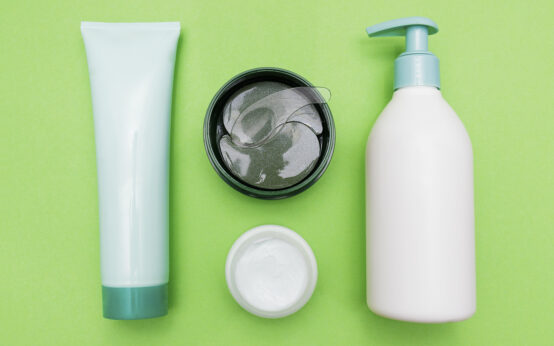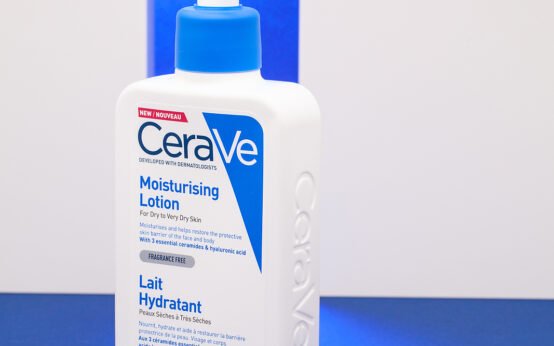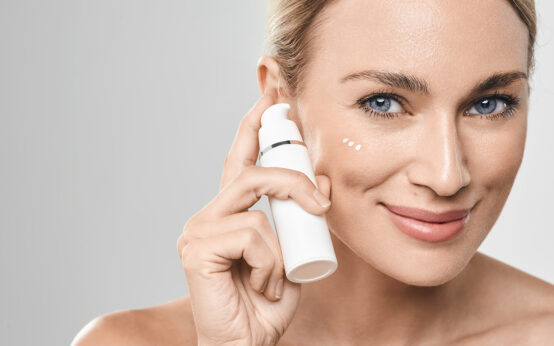When looking for a moisturizer for oily skin, you should look for ingredients such as hyaluronic acid and glycerin. You can also choose one that is tailored to your skin care goals, such as addressing acne or redness. Avoid ingredients that clog pores or cause breakouts, and do a patch test before purchasing a new moisturizer. Listed below are some of the best moisturizers for oily skin.
Niacinamide

If you're looking for a moisturizer for oily skin with niacinamide, you've come to the right place. Niacinamide is a common ingredient in many high-quality skincare products, and you can find many different formulations. Look for moisturizers that contain at least 4 percent niacinamide. This ingredient is effective for oily skin, as well as for blemish-prone skin.
Niacinamide is a powerful antioxidant that helps produce important substances in the skin. It acts as a “cell-communicating” ingredient and can “talk” to all types of skin cells, telling them to produce better, younger cells. This ingredient can be highly effective when applied topically to the skin, which helps it penetrate the skin. Niacinamide is effective in reducing inflammation and minimizing pores, and it also helps restore the skin's barrier.
The niacinamide in moisturizer for oily face can also help treat a variety of skin problems, including rosacea, acne, hyperpigmentation, and wrinkles. Niacinamide is a great way to encourage collagen production, diminish fine lines, and minimize sun-induced dark spots. It also acts as a powerful antioxidant, shielding your skin from the damaging effects of oxidative stress.
The lipid barrier on the skin is a key component in retaining moisture. The niacinamide in moisturizer for oily skin also stimulates the production of ceramides, which help hold skin cells together and prevent water loss. Ceramides are also essential for skin hydration. Niacinamide also helps repair skin cells and reduce the appearance of large pores. Niacinamide is a great antioxidant and can fight acne.
The creams and lotions with niacinamide in them will help your skin heal and regenerate. They contain phytonutrients and can be used on all skin types. It is also a potent hydrator and will make your skin appear porcelain-like. Some users find the niacinamide in a moisturizer for oily skin to be greasy. While the cream has helped her skin, it's not right for everyone.
Hyaluronic acid

The hydrating benefits of hyaluronic acid are extensive. It has a powerful water-binding capacity, holding up to 1,000 times its weight. It is the ultimate hydrator, boosting moisture levels and plumping existing fine lines. It is one of the most commonly used ingredients in skin care products, and its benefits are not limited to hydration. Hyaluronic acid is also a natural component of the skin, making it an excellent ingredient for skin care.
Hyaluronic acid helps keep skin moisturized by reducing the size of pores and controlling the production of oil. When used in skin care products, it improves the appearance of oily skin by plumps up the skin and reduces sebum production. In addition, it works well with other ingredients in skin care products to enhance their efficacy. Hyaluronic acid may also help to prevent future breakouts.
In addition to being effective as a moisturizer for oily skin, hyaluronic acid can also be an excellent treatment for acne and dry skin. This hydrating ingredient can draw moisture to the skin, even when it is damp. Applying it twice daily will keep your skin moisturized and supple. For the best results, apply hyaluronic acid on your face twice a day, or more if needed.
To find a good moisturizer for oily skin, it is important to choose one that contains the necessary ingredients. Generally, a hydrating serum with hyaluronic acid will suffice, while an oil-free, non-comedogenic lotion will give your skin the extra moisture it needs. A good drugstore find is Cerave's oil-free PM moisturizer. It contains hydrating hyaluronic acid, skin barrier-strengthening ceramides, and soothing niacinamide.
Although many acne treatments claim to reduce the appearance of acne marks, there is no denying that oily skin requires hydration. A daily moisturizer will keep the skin feeling comfortable and supple, and will prevent the appearance of acne marks. Hyaluronic acid is a powerful moisturizer that can regulate oil production and promote a healthy, matte complexion. Hyaluronic acid is effective in both cleansing and regulating oil production, making it a great choice for those who suffer from oily skin.
Glycolic acid

If you have oily skin, you should avoid using products with Glycolic Acid. While the ingredient has been proven to be safe for combination and oily skin types, some people may experience some mild irritation. In such a case, it's best to use a moisturizer without Glycolic Acid first. However, this should only be done when you've thoroughly cleansed your skin.
As an ingredient in moisturizers for oily skin, Glycolic Acid has several benefits. It promotes the separation of old cells from the new ones. It also improves skin absorption, so makeup clings to your skin better. It also improves skin appearance by smoothing out the appearance of deep wrinkles. Combined with other ingredients, Glycolic Acid can smooth and tighten the appearance of oily skin.
In addition to improving your skin's appearance, glycolic acid promotes exfoliation. It breaks down the bonds between dead skin cells, bringing out smooth, baby-like skin. This helps the moisturizer penetrate the active ingredients in the product. Glycolic acid can also have anti-aging effects. By making your skin look younger, your moisturizer will also promote cell growth. However, you should be sure to follow this guideline.
Although Glycolic acid is a powerful ingredient, it can also cause some side effects. Depending on the concentration of glycolic acid in a moisturizer for oily skin, you may experience mild irritation and redness. This is normal. If the irritation is severe, you may need to change your skincare product. Glycolic acid in moisturizers for oily skin comes with a risk of sun sensitivity. In such cases, a dermatologist should be consulted.
Aside from the benefits of Glycolic acid for oily skin, it also helps with Keratosis Pilaris, a buildup of keratin under the surface of the skin. Using a moisturizer with Glycolic Acid for acne treatment may help you achieve this goal. Glycolic acid can also be used on any part of the body. Generally, the acid is most effective on the face, but its benefits extend beyond facial skin care.
Dimethicone
Many people wonder whether dimethicone as a moisturizer is safe for oily skin. In fact, it is on the list of ingredients that the FDA considers to be “skin protectants.” However, there are some concerns about dimethicone. For one thing, it is a known irritant, so using it without caution is not recommended. Some users have reported irritation, so be sure to contact a healthcare professional if you are using this ingredient.
If you're worried about clogged pores, dimethicone should be your last choice. The ingredient contains fluid properties that give skin a silky texture. Furthermore, it helps to seal in moisture, which provides a favorable environment for healing skin. Although dimethicone is oil-free, it's unlikely to penetrate the skin, making it suitable for a variety of skincare and makeup products.
Another benefit of dimethicone as a moisturizer is that it prevents makeup from smearing and flaking. It helps make makeup look even and matte, and it is noncomedogenic, which means it won't clog pores. It also prevents water loss, making skin feel hydrated longer. The resulting matte look is ideal for makeup.
When considering dimethicone as a moisturizer, be sure to check out the ingredient list. Dimethicone is better suited for oily skin than oil-based products. Its ability to mix with sebum can make skin feel less oily and smooth. It may also be suitable for acne-prone skin. In general, dimethicone is less occlusive than petroleum jelly, but it provides a long-lasting softness. Moreover, dimethicone complements drying acne medications, such as astringents.
Another benefit of dimethicone as a moisturizer is that it gives skin a velvety, non-greasy finish. It is also an emollient, meaning that it seals in moisture while keeping your skin hydrated. However, dimethicone has a downside: it increases the penetration of other ingredients that could be considered comedogenic. If you have oily or acne-prone skin, you should avoid using it.


 What Are the Best Skin Care Ingredients?
What Are the Best Skin Care Ingredients?  What to Look For in a Moisturizer
What to Look For in a Moisturizer  CeraVe Moisturizer Review
CeraVe Moisturizer Review  Cerave Cleanser Review
Cerave Cleanser Review  Selecting a Face Moisturizer
Selecting a Face Moisturizer  The Best Face Moisturizer For Sensitive Skin
The Best Face Moisturizer For Sensitive Skin